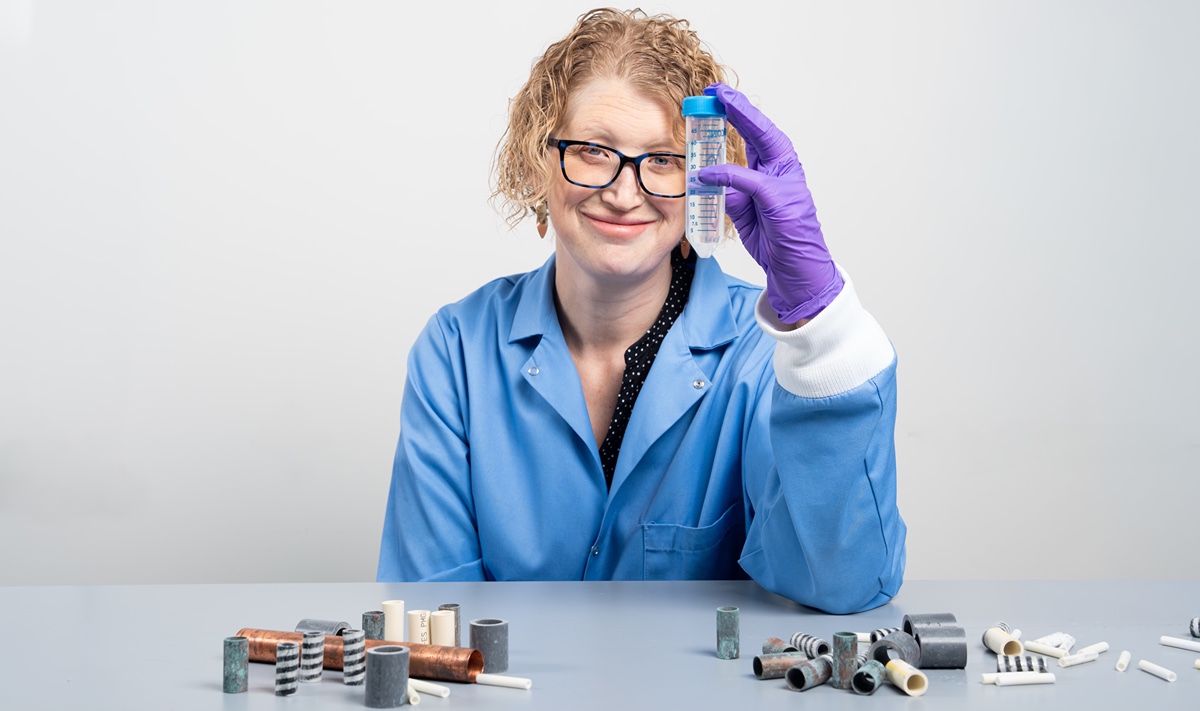ABE faculty member wins prestigious NSF CAREER award
Safe tap water, while ordinary in developed countries, is truly miraculous, the product of generations of ongoing hard work and innovation.
As an undergraduate in civil engineering at Virginia Tech, Caitlin Proctor realized she wanted to be one of those innovators.
“Safe drinking water is something that’s needed all over the world, and there are still many remaining issues, especially with microbiology,” says Proctor, assistant professor of agricultural and biological engineering and sustainability and environmental engineering. “It seemed like the most good I could do with my skills.”
This summer, Proctor received a $500,000 National Science Foundation CAREER award to further her research into drinking water safety. The CAREER award is the NSF’s most prestigious grant, dedicated to supporting early-career faculty “who have the potential to serve as academic role models in research and education and to lead advances in the mission of their department or organization.”
“Getting a CAREER award is a big honor – it’s not just about the grant; it’s about the field’s confidence in you to become a leader in the future,” Proctor says.
She plans to use the money on a five-year project investigating biofilms in drinking water pipes. Biofilms are collections of microorganisms embedded in an “extracellular polymeric substance matrix” – in layman’s terms, bacteria stuck together with slime. The slime makes the microorganisms difficult to remove. Depending on what type of bacteria are present, this can be a problem for water quality.
“We brush our teeth to remove the biofilm on our teeth,” Proctor says. “But we can’t really brush inside our pipes.”
Instead, Proctor will experiment with designing biofilms to be probiotic – encouraging “good bacteria” that compete with pathogens. She and her team will first test how different bacterial isolates compete with pathogens. Once they’ve selected the most competitive bacteria, they’ll 3D print them into biofilms and study their ecology. The goal is to make good biofilms that prevent invasion by pathogens.
The grant money will go towards hiring students – both graduate and undergraduate students – as well as paying for lab supplies and outreach activities such as presentations on drinking water safety at the State Fair. Proctor will also be developing a course on biofilms for graduate students.
Proctor’s other work has ranged from post-wildfire water safety to well water microbiomes to water system safety issues caused by stagnation. The pandemic presented an opportunity for a natural experiment in stagnation, as many office buildings were closed, their pipes unused. Proctor showed that this stagnation altered both water chemistry and microbiology.
“We build our buildings to be in use, and when they weren’t, we didn’t know what would happen,” she says.
Her latest research looks at how biofilms might help recover metals from landfills, helping create a more sustainable circular economy.
Purdue has been an ideal place to study the inherently multidisciplinary subject of water safety, Proctor says.
“I’ve found collaborations in both the departments I work in and even outside of them, with lots of equipment-sharing and support,” she says. “Purdue has great people and also a great research infrastructure.”
She hopes that her CAREER award-funded work will help draw interest to issues of clean drinking water in general, and biofilms in particular.
“Microbiome engineering is a new field, but a growing one,” she says.
This research is a part of Purdue’s presidential One Health initiative, which involves research at the intersection of human, animal and plant health and well-being.






